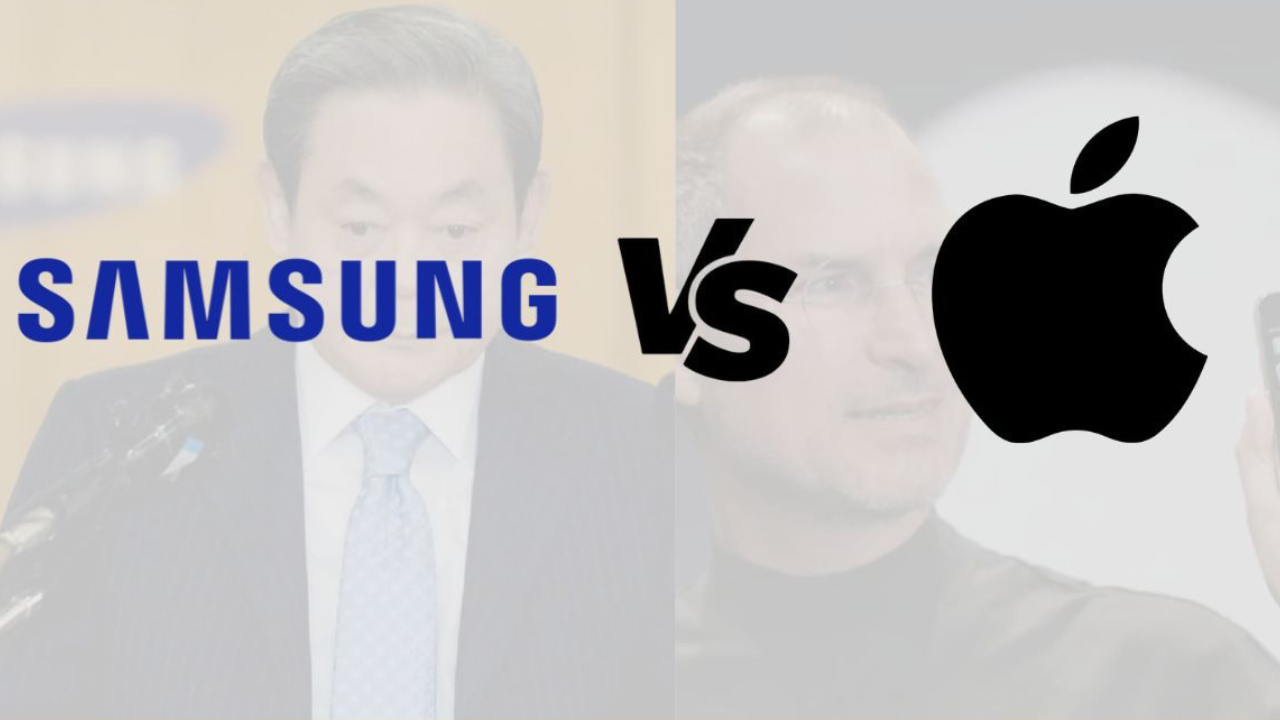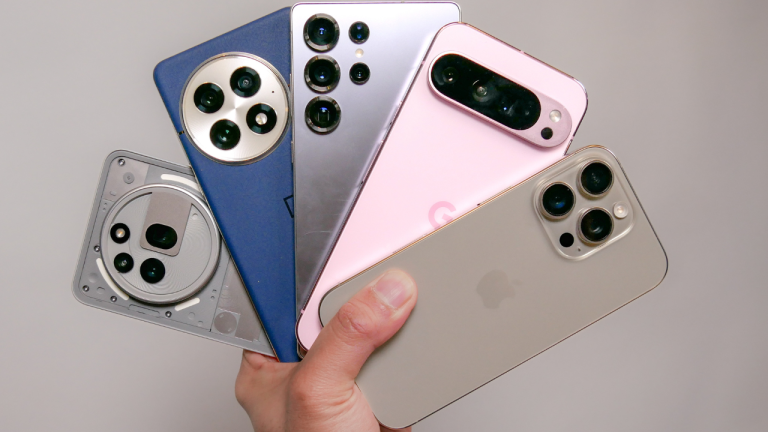Apple vs. Samsung: Who’s Winning the 2025 Tech War?
The rivalry between Apple and Samsung isn’t just a competition—it’s a full-scale tech war that has shaped the direction of consumer electronics for over a decade. From smartphones to smartwatches, from laptops to foldables, these two giants have constantly tried to outpace one another. But in 2025, as the digital world matures with AI integration, foldable tech, and spatial computing, one question keeps surfacing: Who’s actually winning the tech war?
To answer that, we need to look beyond hype and headlines. This isn’t just about who sells more phones. It’s about innovation, influence, ecosystem strength, user loyalty, and future vision. So let’s break it down.
Smartphones: A Close Battle with New Priorities
In 2025, the smartphone is still king, but not in the same way as five years ago. Now, it’s about ecosystem connectivity, AI performance, and future-ready design.
Apple released the iPhone 17 Pro Max this year, with a sleeker titanium build, upgraded A19 chip, and a native AI engine designed to power on-device machine learning. Spatial video recording and Vision Pro integration are now standard, which strengthens Apple’s push toward immersive experiences.
Samsung, on the other hand, made waves with the Galaxy S25 Ultra and the Fold 6. The S25 Ultra includes a 200MP camera with real-time generative AI editing, and the Fold 6 finally solved the hinge durability issues while being lighter than ever. Samsung is doubling down on foldables, and its partnership with Google AI has pushed its phone UI into highly personalized territory.
Who’s ahead in smartphones?
Samsung wins on hardware versatility and experimentation. Apple wins on ecosystem polish and long-term software support. But Samsung’s aggressive push into foldables is setting it apart in 2025.
AI Integration: Who’s Smarter in 2025?
AI isn’t just a buzzword anymore—it’s how these companies are reimagining the user experience.
Apple’s AI strategy in 2025 has taken a more privacy-focused, on-device approach. The iOS 19 system-wide AI can summarize messages, transcribe calls, rewrite notes, and even predict app behavior based on user patterns. Apple’s big selling point? All of this happens securely, with no cloud processing unless you opt in.
Samsung’s approach, through Galaxy AI, leans into assistant-like behavior. With deep integration of Google Gemini and its own AI engine, Samsung devices can now complete voice commands, translate in real-time during calls, and create AI-generated art from prompts—all connected across phones, tablets, and even TVs.
Who’s winning in AI?
Apple leads in privacy-first, system-wide AI. Samsung leads in everyday utility and cross-device AI. The AI battle in 2025 is too close to call, but Samsung is making AI feel more present and playful for the average user.
Wearables and Ecosystem Strength
A key battleground in the tech war is the ecosystem. It’s not just about one device—it’s how they all work together.
Apple’s ecosystem remains unmatched in 2025. The Watch Series 10 offers new health metrics powered by micro-sensors, and AirPods Pro 3 now adjust sound directionality based on where you’re looking—perfect for Vision Pro users. The handoff between iPhone, MacBook, iPad, Watch, and Vision Pro is fluid. Apple has turned its ecosystem into a seamless digital bubble that’s hard to escape once you’re in.
Samsung’s ecosystem is more open and versatile. The Galaxy Watch 7 brings improved fitness tracking with real-time glucose estimation, while the Galaxy Buds X feature spatial audio and live AI translation. Samsung also has a lead in smart home integration, thanks to SmartThings and its vast range of home appliances.
Who’s winning in wearables and ecosystem?
Apple dominates in polish, premium synergy, and user retention. Samsung wins in openness and variety across devices and price ranges. Apple edges ahead in the premium segment, but Samsung’s flexibility attracts a broader global audience.
Laptops, Tablets, and Beyond
Both companies are expanding their tech dominance beyond phones and wearables.
Apple’s MacBook Air M4 and iPad Pro M4 are industry leaders in performance and battery life. Apple Silicon has kept the company ahead in efficiency, and the new macOS version introduces tighter Vision Pro integration for virtual desktops and remote workflow. The iPad is now almost a full laptop replacement for creatives.
Samsung’s Galaxy Book 5 series introduced AI-powered laptop assistants and seamless Android-Windows interactions. The Tab S10 Ultra is thinner than ever and features DeX mode improvements, turning the tablet into a near-laptop experience.
Who’s ahead in computing?
Apple still leads in performance and premium creativity tools. Samsung competes on the strength of its multi-device productivity setup, especially for Android and Windows users. But overall, Apple remains the benchmark in personal computing in 2025.
Vision Pro vs. Foldables: Two Different Futures
This might be the most telling difference in their strategies.
Apple’s Vision Pro represents its long-term bet on spatial computing. Now in its second generation, it’s lighter and more versatile. It’s not for everyone, but it’s changing how people think about computing, media, and even social interaction in 3D environments.
Samsung’s answer isn’t a headset, but foldable smartphones and laptops that transform based on need. The Galaxy Z Fold 6 and Galaxy FlexBook blur the line between phone, tablet, and computer. Samsung believes portability and flexibility, not headsets, are the future.
Who’s winning the future?
Apple is redefining computing with Vision Pro, but it’s still early. Samsung’s foldables are already mature and affordable. Right now, Samsung’s future vision is more accessible, but Apple’s has the potential to be more transformative.
Market Share and Public Perception
Globally, Samsung continues to hold the edge in raw unit sales, thanks to its dominance in Asia, Latin America, and Africa. It offers devices at every price point, giving it reach that Apple simply doesn’t compete with.
In terms of brand loyalty and customer satisfaction, Apple still leads, especially in North America and Europe. The average iPhone user is more likely to upgrade within the Apple ecosystem, while Samsung users tend to switch between Android brands more often.
Who’s winning the market?
Samsung is winning in volume. Apple is winning in value and loyalty. Both companies dominate different segments with different strategies.
Final Verdict: Who’s Really Winning the 2025 Tech War?
It depends on how you define winning.
If we’re talking innovation and experimentation, Samsung is leading with its foldables, AI features, and flexible ecosystem. If we’re talking ecosystem polish, long-term vision, and customer loyalty, Apple remains the gold standard.
Samsung is winning the present with aggressive tech releases across all categories. Apple is winning the future with its slow but steady push into spatial computing and deeper user integration.
In the end, the real winner might be the consumer. The rivalry has pushed both companies to deliver exceptional technology at every level, from budget phones to high-end wearables to reimagined computers. And as they keep raising the bar, users benefit with better choices, smarter devices, and a future that keeps getting more exciting.
Stay in touch to get more news & updates on Tech Marsh!




